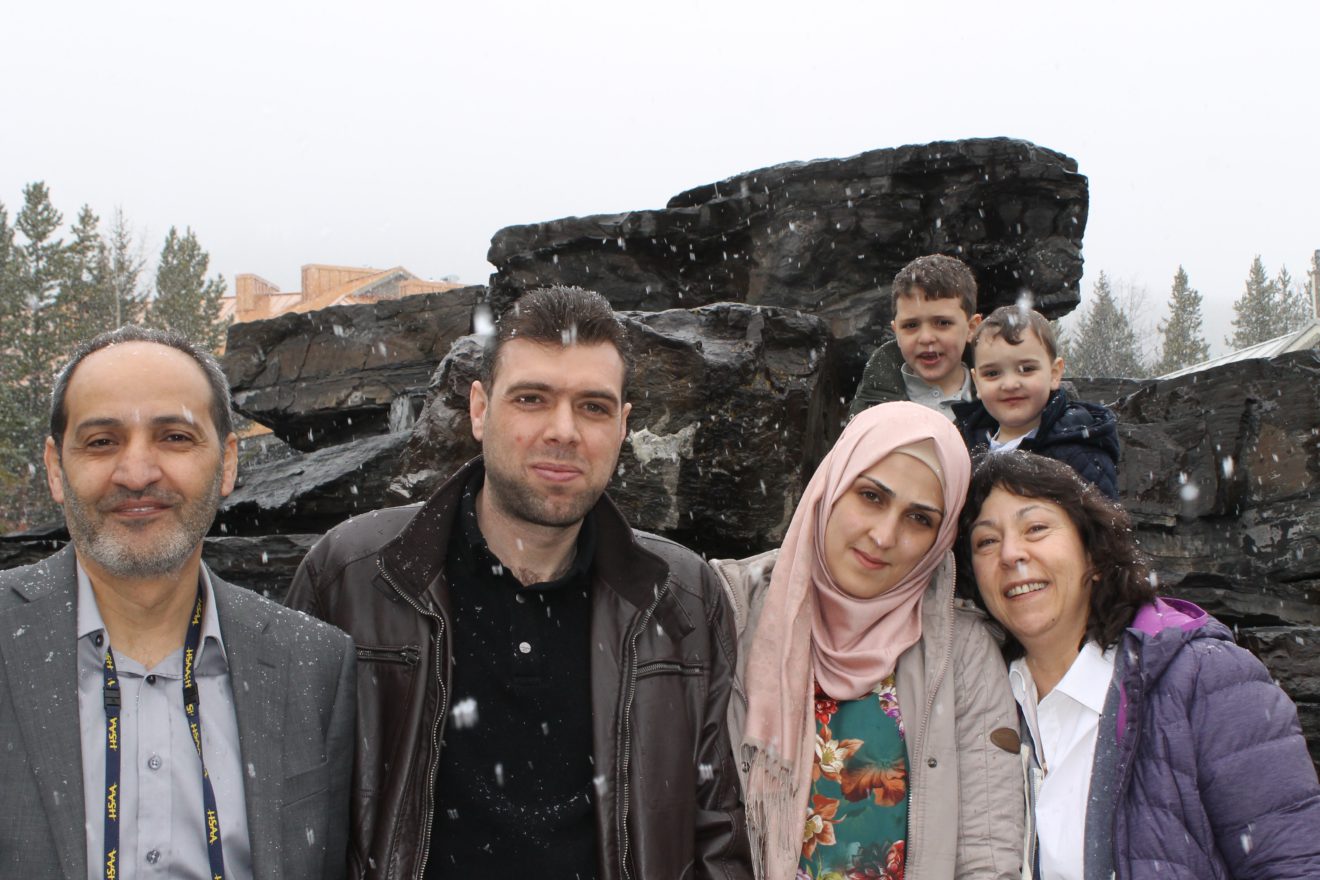Note: The following oped was originally published in the Edmonton Journal. Photo (above): The family pictured in Kananaskis with Ayed Saad and Faika Satterthwaite earlier this year.
As headlines mistakenly scream about a refugee crisis in Canada, as we hear claims that diversity is a threat to Canada and as alt-right anti-immigrant groups try to recruit the homeless at a Labour Day event in Edmonton, we seem to be in a constant state of fear.
Why? What happened? Canadians weren’t afraid when Czech and Hungarian refugees flooded here in the 1950s and ’60s or when refugees came by the thousands from Uganda and Vietnam in the 1970s.
After the Second World War, about 10,000 Czech refugees fleeing Soviet rule were accepted here. After the failed Prague uprising of 1968, another 12,000 came. About 37,000 Hungarians came to Canada after the Soviets crushed their revolt in 1956.
In 1972, Canada accepted 7,000 Asians expelled from Uganda. After the collapse of South Vietnam in 1975, more than 66,000 refugees from southeast Asia resettled here.
We seemed fine with these influxes. It didn’t frighten us that they were coming and they didn’t strain our national resources to breaking point. Their arrival didn’t make the rest of us less Canadian. Time has proved that each wave of refugees settled quickly and became assets to their communities and the country.
Fear, however, is overwhelming facts nowadays. Armed with fistfuls of facts, you can argue until you lose your voice and some people will not waver. Their fears are based on emotions whipped up by politicians seeking to boost their own careers. So, the response must be an emotional one.
That is why on this Labour Day, this Alberta union would like to issue a challenge to those afraid of “others” including Syrian refugees and Haitian asylum seekers.
That challenge is: Don’t just talk about newcomers, get to know the people.
It’s easy to fear strangers, especially when you’re told thousands of them are coming, but it’s much harder to be afraid of one family. When you break bread with a mother, father and children, when you watch them play in the park, when you talk to them about their dreams, your fear will melt away.
That is the major lesson that can be learned from the Health Sciences Association of Alberta’s experience in sponsoring a family of Syrian refugees to come to Alberta.
This union has been involved in humanitarian and social-justice issues for many years. We have donated to causes and emergencies near and far, including helping flood and fire victims in Alberta and disaster victims in the Philippines and Nepal.
Helping others is what our members do every day of their working lives, so donating to help in these ways is a natural extension of that. It is a core value of this union and of labour movement.
This time, however, HSAA wanted to do more than write a cheque and walk away. We wanted to do the groundwork of fighting through layers of bureaucracy, of finding and furnishing a home, of getting members to donate toys and school supplies.
We wanted to meet our family face to face, to get to know them as people. We wanted to help them over every hurdle for their first year in Canada. After only 12 months, our family of four — a mother, father and two young boys (a baby girl died in the refugee camp because of a lack of medical support) are entirely self-sufficient.
Dad’s working six days a week at a car dealership to provide for his family. Mom is doing great at college (top two in all her classes) and hopes to be working as a teacher’s assistant soon. The oldest son, aged seven, needed some dental work and glasses, but is doing well. The younger son, aged four, is thriving.
They have not been a drain on the country and are now actively contributing to their community — they earn money, spend money to boost the local economy and pay taxes to support other Canadians.
In short, they’re leading ordinary Canadian lives. Their lives have been transformed from an unsafe hell of falling bombs, harassment and fear, to one that to most of us would be humdrum, but to them is a dream.
So, I repeat our challenge. Stop falling for the fear-mongering. Find a refugee family or a recent immigrant and talk to them. Look them in the face, ask them about their dreams and, pretty soon, you’ll realize you are looking into a mirror.
Trudy Thomson is vice-president of the Health Sciences Association of Alberta, the union that represents more than 25,000 health-care professionals.
